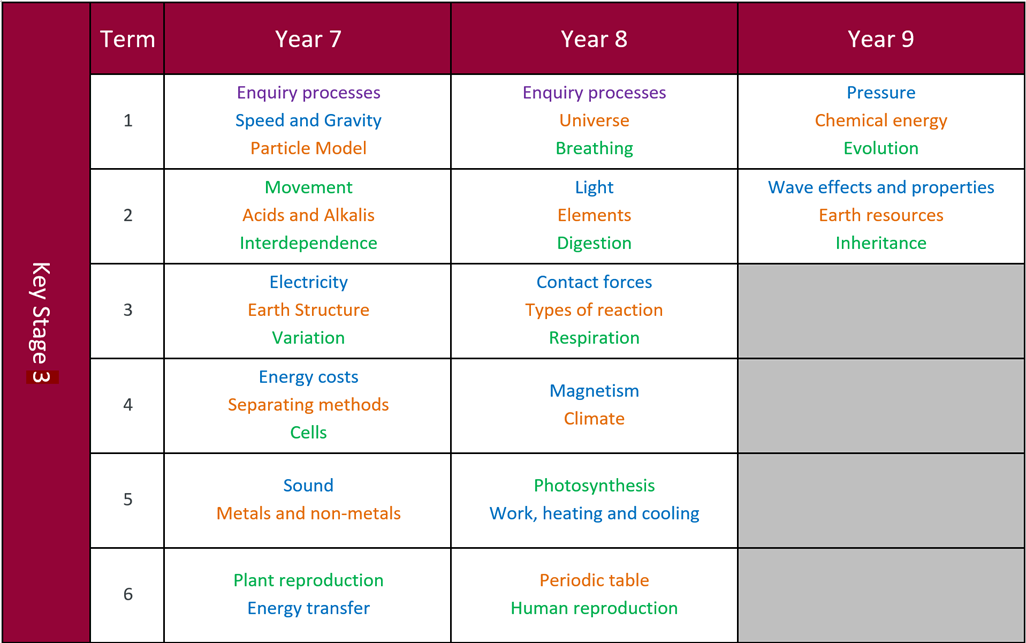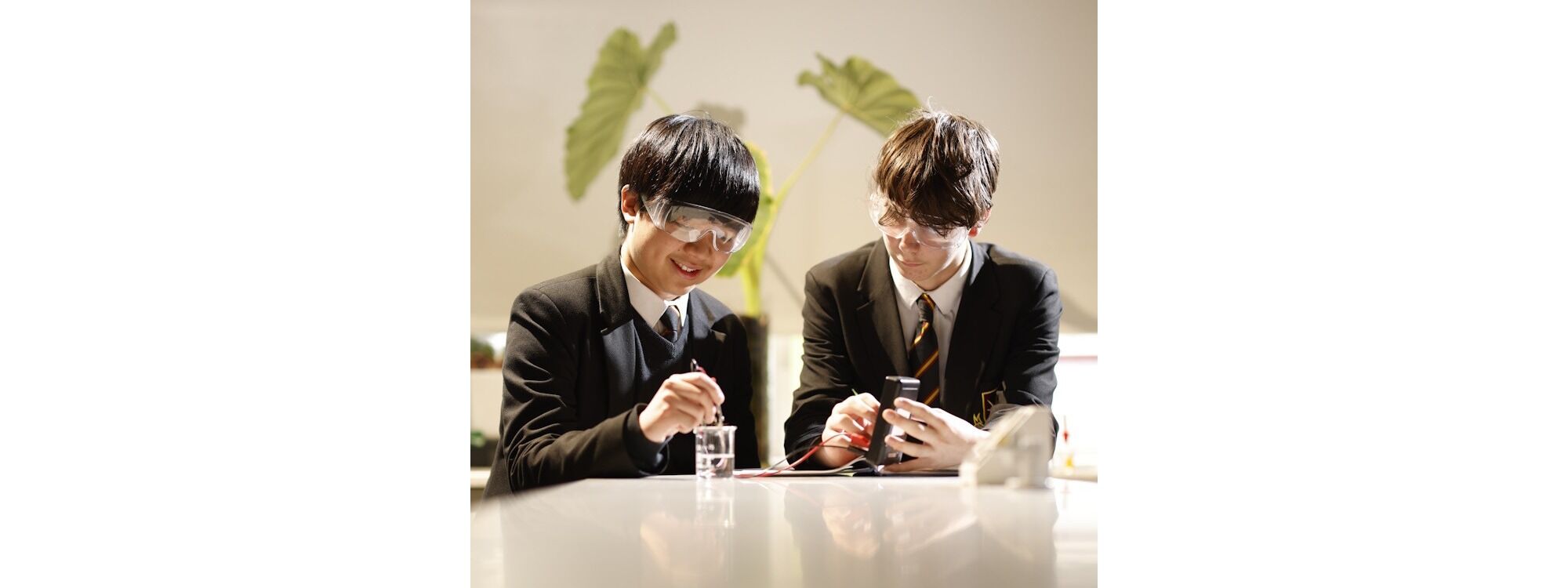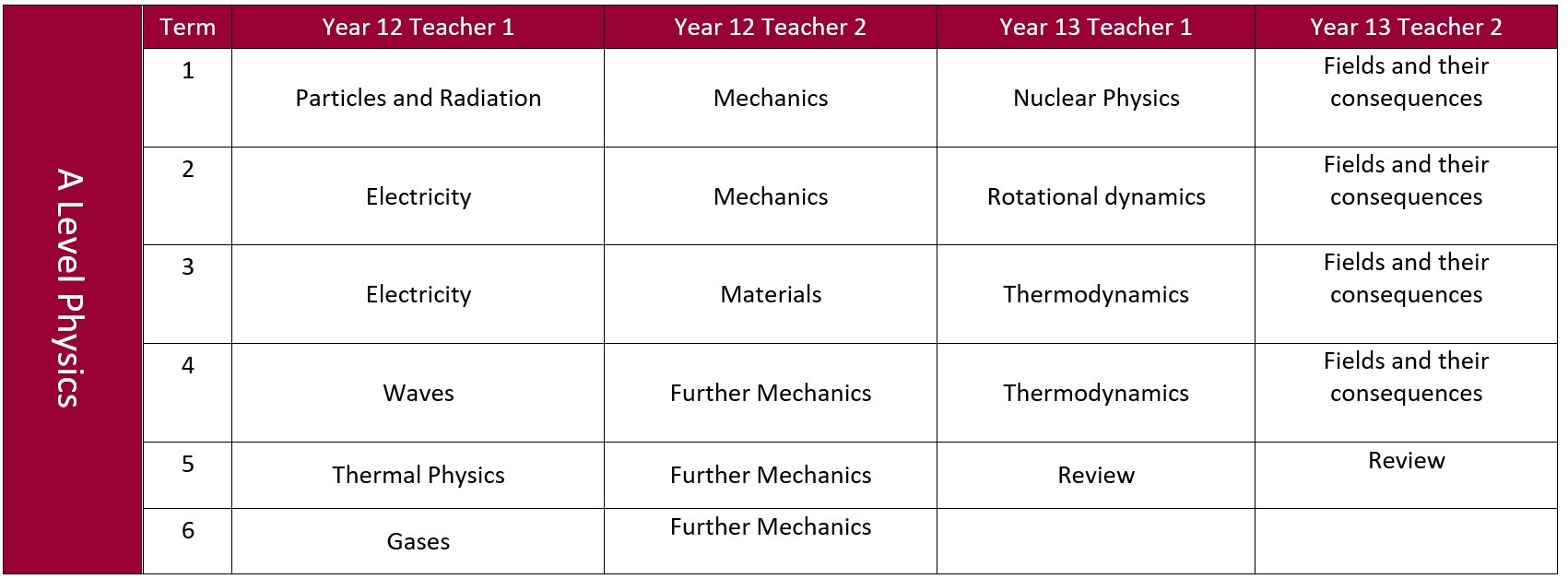Physics
BackHead of Science & Physics: Mr D Brady
Teachers: Mr D Ivison, Miss J Mawn, Mr O Oluwawumi
Technicians: Mrs F Chick, Mrs S Gash, Miss R Robinson, Mrs C Sheridan, Mr A Thomas, Miss N Wicks (Sevenoaks)
Years 7–9 are taught general Science until Year 10 when Physics, Chemistry and Biology are taught as separate subjects. In the Physics department, we seek to promote and encourage a fascination with the physical world and a curiosity with how it works, then answering the questions arising from these. We study forces, energy, electricity, radioactivity and space, exploring some in Medical Physics and engineering, environmental and ethical issues on the way. Throughout the course, we build an understanding of the limitations of what we know, the opportunities to find something new, or to perfect something, for the good of mankind and develop an understanding of the social, moral and ethical implications of our actions. [Updated 2025/26]
Co-curricular activities
We compete in various STEM competitions and have entered teams into CanSat.
The important thing is to not stop questioning. Curiosity has its own reason for existence. One cannot help but be in awe when he contemplates the mysteries of eternity, of life, of the marvellous structure of reality. It is enough if one tries merely to comprehend a little of this mystery each day.
(Einstein)
Years 7, 8 and 9

In KS3 we study a modified version of the AQA Activate Science scheme. This is taught by one or two teachers as a general combined Science lesson. Physics topics include forces and their effects, sound and light. In Year 8 students go on to study space, electricity and magnetism, and energy.
GCSE: Years 9, 10 and 11
 Students begin Year 9 completing their KS3 physics studies with a unit on motion and pressure. They then go on to study a unit on radioactivity before starting their GCSE studies and completing the Physics GCSE topic of energy. In Year 10 students study electricity; the particle model of matter; and atomic structure. In Year 11, students study forces and motion; waves; magnetism; and electromagnetism and space.
Students begin Year 9 completing their KS3 physics studies with a unit on motion and pressure. They then go on to study a unit on radioactivity before starting their GCSE studies and completing the Physics GCSE topic of energy. In Year 10 students study electricity; the particle model of matter; and atomic structure. In Year 11, students study forces and motion; waves; magnetism; and electromagnetism and space.
Assessment/Examination
Terminal examination – two papers of equal weight, each 1 hr 45 mins, each with a mixture of multiple choice, closed short answer, structured and long answer questions.
Exam board: AQA
A Level: Years 12 and 13
Course content
The Physics course builds and expands upon many of the key concepts established in GCSE science.
We engage in a range of learning experiences, such as role playing (excitation of atomic electrons and electron energy levels, for example), student presentations, model making, collaborative learning techniques, electronic student feedback (e.g. Socrative), problem solving, especially using past paper questions. Asking and answering questions are crucial elements of the learning experience.
Examination
|
Outline |
A Level |
|
Examination: Paper 1
|
34%
|
|
Examination: Paper 2
|
34%
|
|
Examination: Paper 3
|
Exam board: AQA
Careers Education
- Physics equips you with the ability to embark upon a wide range of courses and careers: from nanotechnology to stock market analysis, from geophysics to astronautics. The most popular courses followed by students tend to be in the fields of Physics, the Sciences, Medicine or Engineering.
- The Department has a successful track record of students proceeding to study Physics or Engineering at university.
- The department provides extensive further reading lists with a view to impressing university entrance officers.
- Guest speakers have come in and discussed their roles e.g. Bloodhound, Young Engineers. This gives an insight into what such careers involve and the pathways into them.
- The Department also provides advice and mock interviews for those students who requiring extra support for any applications to higher education.

